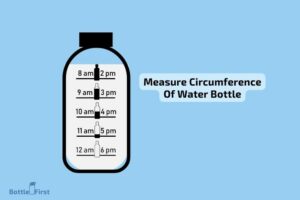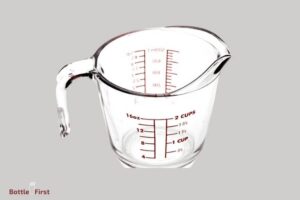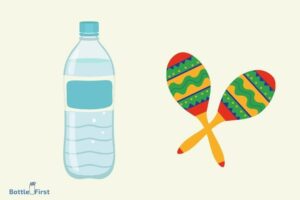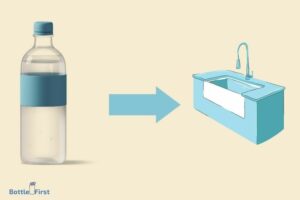Can Bottled Spring Water Make You Sick: Facts & Riskes
Introducing a surprising truth about bottled spring water – can it actually make you sick? Read on to unravel the mysteries hidden within your favorite thirst quencher.
While it’s rare, bottled spring water can potentially make you sick if contaminated with harmful microorganisms or chemicals.
In conclusion, while bottled spring water is generally considered safe, it’s essential to ensure it comes from a reputable source, adheres to safety regulations, and is stored properly.
Stay informed and choose wisely to protect your health.
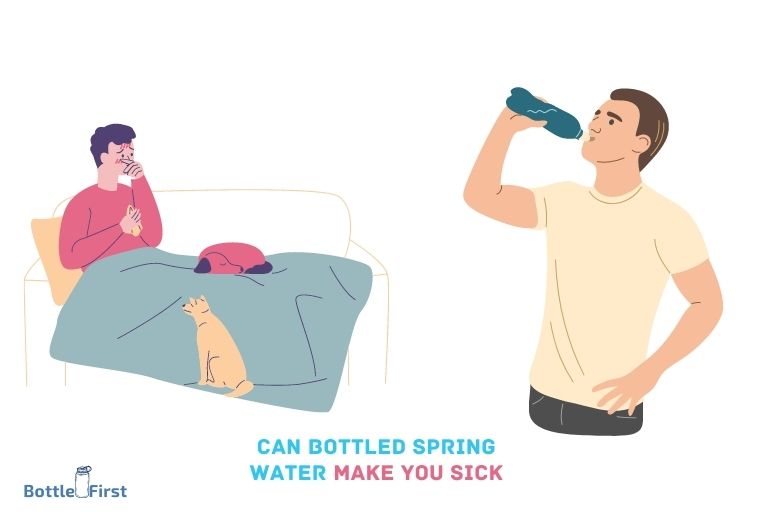
Can Bottled Spring Water Make You Sick: Factors & Risk
| Factors | Risk of Getting Sick | Explanation |
|---|---|---|
| Contamination during bottling | Yes | If the water is contaminated during the bottling process, it can lead to illness. |
| Expired bottled water | Unlikely | Water itself doesn’t expire, but the plastic bottle can leach chemicals over time, which may affect the taste and quality of the water. |
| Improper storage | Yes | If bottled water is stored in a hot or sunny environment, chemicals from the plastic can leach into the water, potentially causing health issues. |
| Bacterial growth | Yes | If the water is not properly treated or if the bottle is opened and not properly resealed, bacteria can grow and cause illness. |
| Tampering | Yes | If the bottle is tampered with or opened by someone else, the water may be contaminated and could cause sickness. |
| Natural contaminants | Possible | Some spring water sources may contain natural contaminants, like minerals or metals, which could cause health problems if consumed in large amounts. |
| Allergic reaction | Rare | Some individuals may have an allergic reaction to certain minerals or contaminants in spring water. |
What Causes Contamination in Bottled Spring Water?
Contamination in bottled spring water can occur due to various reasons, ultimately posing a risk to our health.
The potential sources of contamination include improper handling during bottling, transportation, storage, and environmental factors, which may introduce harmful substances into the water.
- Improper handling during bottling: Contaminants may be introduced at the source, during collection, or through the equipment used.
- Transportation: Water bottles may be exposed to temperature fluctuations or stored with other items, causing potential contamination.
- Storage: Bottles stored under unfavorable conditions, exposed to sunlight or heat for example, can lead to the growth of bacteria or algae.
- Environmental factors: Natural contaminants may be present in spring water, such as bacteria, viruses, or trace amounts of metals like lead or arsenic.
How Can You Avoid Getting Sick from Bottled Spring Water?
Dive into the world of bottled spring water and discover how to stay healthy and hydrated, without falling victim to unforeseen illness. Fear not, because we have cracked the code!
To avoid getting sick from bottled spring water, you must:
- Verify the water source.
- Examine the bottle BPA levels.
- Inspect the bottle’s seal and check the expiration date.
- Store the water correctly.
Spring water can indeed harbor potential risks to your health, which is why doing your homework regarding the water source is essential.
BPA levels found in some bottles can also contribute to sickness, so select BPA-free bottles to play safe.
Always double-check the bottle’s seal for any tampering or damage and remember that bottled water has an expiration date too.
Lastly, keep your bottled water away from direct sunlight and heat to recognize both safety and quality, so you can enjoy your refreshing beverage free from any concerns.
Conclusion
In conclusion, bottled spring water can potentially make you sick if it is contaminated with harmful bacteria or chemicals.
Contamination can occur during the bottling process or after the water leaves the factory. To avoid getting sick from bottled spring water, it’s important to read the label, check for any recalls, and look for water that has been treated with UV light or ozone.
It’s also recommended to store your bottled water in a cool and dry place, and to consume it before its expiration date.
So, while bottled spring water can be a convenient and refreshing option, it’s important to take the necessary precautions to ensure your safety.
TL;DR:
- Bottled spring water can make you sick if contaminated with harmful bacteria or chemicals.
- Check labels, recalls, treatment methods, and expiration dates to avoid getting sick.
- Store in a cool, dry place.
- Be cautious when considering bottled spring water as a drink option.
According to the International Bottled Water Association, bottled water is one of the most strictly regulated products in the US, and is required to meet extensive federal and state regulations for safety and quality.
bottlefirst
FAQ
Is bottled spring water safe to drink?
Yes, bottled spring water is generally safe to drink. It is typically tested for safety and quality before being bottled and distributed for consumption.
Is there a risk of getting sick from drinking bottled spring water?
Generally, drinking bottled spring water is safe and there is no risk of getting sick from doing so.
However, it is possible to ingest bacteria or other contaminants if the bottle is compromised in some way.
Could bacteria or other contaminants be present in bottled spring water?
While quality standards imposed by regulatory agencies will usually prevent contamination, there is still a chance that bacteria or other contaminants could be present in bottled spring water.
Are there any health benefits of drinking bottled spring water?
Drinking bottled spring water, like any water, can keep you hydrated and help with digestion.
Additionally, bottled spring water often contains trace amounts of minerals like calcium, magnesium, and sodium that can contribute to overall health.
Is it safe to drink bottled spring water?
Bottled spring water is generally considered safe to drink as it undergoes rigorous testing and purification methods.
However, there is still a risk of contamination during the bottling process or due to improper storage.
It is recommended to check the label for the source and bottler of the water and ensure that it meets the standards set by the FDA.
Moreover, if the water has an unusual taste or odor, it should not be consumed. It is also important to store the water properly and avoid exposing it to sunlight or high temperatures.
- Bottled spring water undergoes testing and purification.
- Risk of contamination during bottling or storage.
- Check the label for source and bottler.
- Ensure it meets FDA standards.
- Don’t consume if water has unusual taste or odor.
- Store water properly and avoid exposure to sunlight or high temperatures.
Why is my bottled water making me sick?
If you are experiencing sickness after drinking bottled spring water, it is important to understand the possible reasons.
Bottled spring water may contain harmful bacteria, viruses, or parasites that can cause illness. The source of the water, the bottling process, and storage conditions can all impact the safety of bottled spring water.
Additionally, chemicals from the plastic bottle may leach into the water and contribute to health issues.
To avoid these problems, consider using an alternative source of drinking water or ensure that the bottled water you are consuming is from a reputable brand.
- Check the source of the bottled water before purchasing it.
- Store bottled water in a cool, dry place away from sunlight.
- Look for brands that regularly test their water for safety.
- Consider switching to a different type of water, such as filtered tap water or distilled water.
- If experiencing symptoms like nausea, vomiting, or diarrhea after drinking bottled water, contact a healthcare professional immediately.
Is spring water safe to drink everyday?
Bottled spring water is generally safe for drinking every day. However, there are certain cases when it might not be safe.
The safety of spring water depends on the source and treatment it has undergone before being bottled.
The following factors can affect the safety of bottled spring water:
- The source of the water
- The quality of the water
- Whether the water was treated or not
- Whether the water was properly stored
- The type of container used for bottling
It is always advisable to check the label for information about the source and treatment of the water.
Moreover, if there are any concerns about the safety of the water, it is better to opt for treated tap water.
How do I know if my spring water is safe?
If you are consuming bottled spring water, you might be wondering if it is safe. Here are some ways you can check if your spring water is safe to drink:
- Check the label: The label on the bottled water should state that it meets the FDA and the EPA regulations for drinking water.
- Water source: Choose a brand that sources its water from a protected and well-managed spring source.
- Test the water: You can buy a water testing kit to check the water’s pH level and other mineral levels.
- Taste and odor: Taste and smell the water to make sure it doesn’t have an unpleasant taste or odor.
- Expiration date: Check the expiration date on the bottle. Drinking expired water can make you sick.
It is essential to ensure that your spring water is safe to drink to avoid any health issues.
Are There Any Risks of Storing Bottled Water in a Hot Garage?
Storing bottled water in hot garages can pose risks to its quality. High temperatures may cause the plastic to leach harmful chemicals into the water. Additionally, heat can expedite the growth of bacteria or algae, contaminating the water. It is advisable to store bottled water in cool, dark areas to maintain its safety and freshness.
Is spring water better than pure water?
Bottled spring water is not necessarily better than pure water. While some people prefer the taste of spring water, there is no scientific evidence to suggest that it is healthier than pure water.
Moreover, drinking contaminated spring water can make you sick. Even bottled spring water can be contaminated with harmful bacteria, viruses, parasites, and chemicals.
To minimize the risk of getting sick from bottled water, you should always read the label, choose reputable brands, and store the bottles properly. Additionally, you can boil or filter the water to make it safe to drink.
- Spring water is not necessarily healthier than pure water.
- Drinking contaminated spring water can make you sick.
- Bottled spring water can be contaminated with harmful bacteria, viruses, parasites, and chemicals.
- Always read the label, choose reputable brands, and store the bottles properly.
- You can boil or filter the water to make it safe to drink.
Is spring water safe to drink raw?
Bottled spring water is considered safe to drink raw if it comes from a trusted source. However, there are some risks associated with consuming untreated water, including the possibility of bacterial or viral contamination.
To ensure the safety of your drinking water, it’s recommended to boil water for at least one minute before drinking.
If you don’t have access to boil water, you can use water purification tablets or a portable water filter.
Additionally, always check the source of bottled spring water before consuming, and avoid water that has a strange smell or taste.
- Bottled spring water is safe to drink raw if it’s from a trusted source.
- But untreated water can cause bacterial or viral contamination.
- Boil water for at least one minute before drinking or use water purification tablets or a portable water filter.
- Always check for the source and avoid water that has a strange smell or taste.


